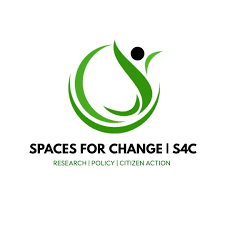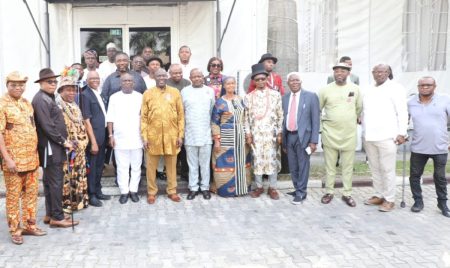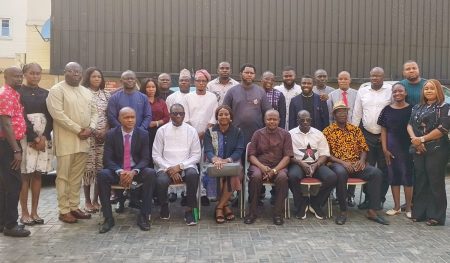 – Seek sanctions against erring oil operators on HCDT funds
– Seek sanctions against erring oil operators on HCDT funds
Mkpoikana Udoma
Port Harcourt — Stakeholders across the country have sought the inclusion of youths and women in the implementation of the Host Community Development Trust, HCDT aspect of the Petroleum Industry Act, PIA.
The stakeholders speaking during a technical session on 3% OPEX funding for HCDTs organized by Spaces for Change in Port Harcourt, Rivers State, also advocated for a severe sanction on erring oil and gas operators to serve as a deterrent to others.
The Ibenanaowei of Ekpetiama Kingdom in Bayelsa State, H.R.M. King Bubaraye Dakolo, in his speech, urged oil operators and industry regulators to stop cutting corners, lamenting that the problem bedeviling the oil and gas sector and the country at large, was a result of regulatory failure.
Dakolo also tasked regulators and the settlors (oil and gas operators) to be socially responsible for the stability of their host communities, by initiating, approving and implementing only HCDT projects that will have generational impacts on the people.
“It is not enough for communities to demand a particular project, but the oil operators who are experts should ensure the HCDT funds are judiciously used for the benefits of even the unborn generations of the community, such as quality education, quality infrastructural projects that have direct impacts on every member of the community.”
Also, Executive Director of Kebetkache Women Development Centre, Dr. Emem Okon, in her presentation, said women were better managers of resources and hence should be adequately represented and included in the Board of HCDTs.
Okon argued that women were usually the most affected by any environmental pollution and other hazards that accompany crude oil and gas production, “hence as people bearing the brunt of crude oil exploitation women should be prioritized in HCDT projects and BOT leadership selection.”
Similarly, the Executive Director of Youths and Environmental Advocacy Centre, YEAC-Nigeria, Mr. Fyneface Dumnamene Fyneface, particularly mentioned the electrification of oil-producing communities with solar power, to boost economic activities and dissuade restiveness among youths in rural areas.
Fyneface explained that electricity will provide alternative livelihoods for community youths and dissuade them from going into illegal activities including illegal refining of petroleum products and pipeline vandalism.
“The reason why youths in the Niger Delta are involved in artisanal crude oil refining and pipeline vandalism is due to lack of alternative livelihoods and if host communities are empowered through provision of alternative livelihoods, no youth will be involved in Kpofire business.”
Fyneface also advocated for the legalization of artisanal crude oil refining in the Niger Delta as a corresponding scheme for the Presidential Artisanal Gold Mining Initiative, PAGMI, set up by the federal government for illegal miners in the Northern and Southwestern Nigeria.
A member of the House of Reps Committee on Host Communities, Hon. Ahmed Adamu Saba, advocated that members of host communities should be given at least 60 percent of employment in the oil companies operating in their domain.
Saba pointed out that having members of the host communities employed in the oil companies would give the community a sense of belonging in the oil upstream operations, and also enable them see themselves as part of the oil and gas activities taking place in their communities.
Responding, the Chairman, Reps Committee on Host Communities, Hon Dumnamene Dekor, assured that all the suggestions from the various stakeholders would be taken into consideration.



